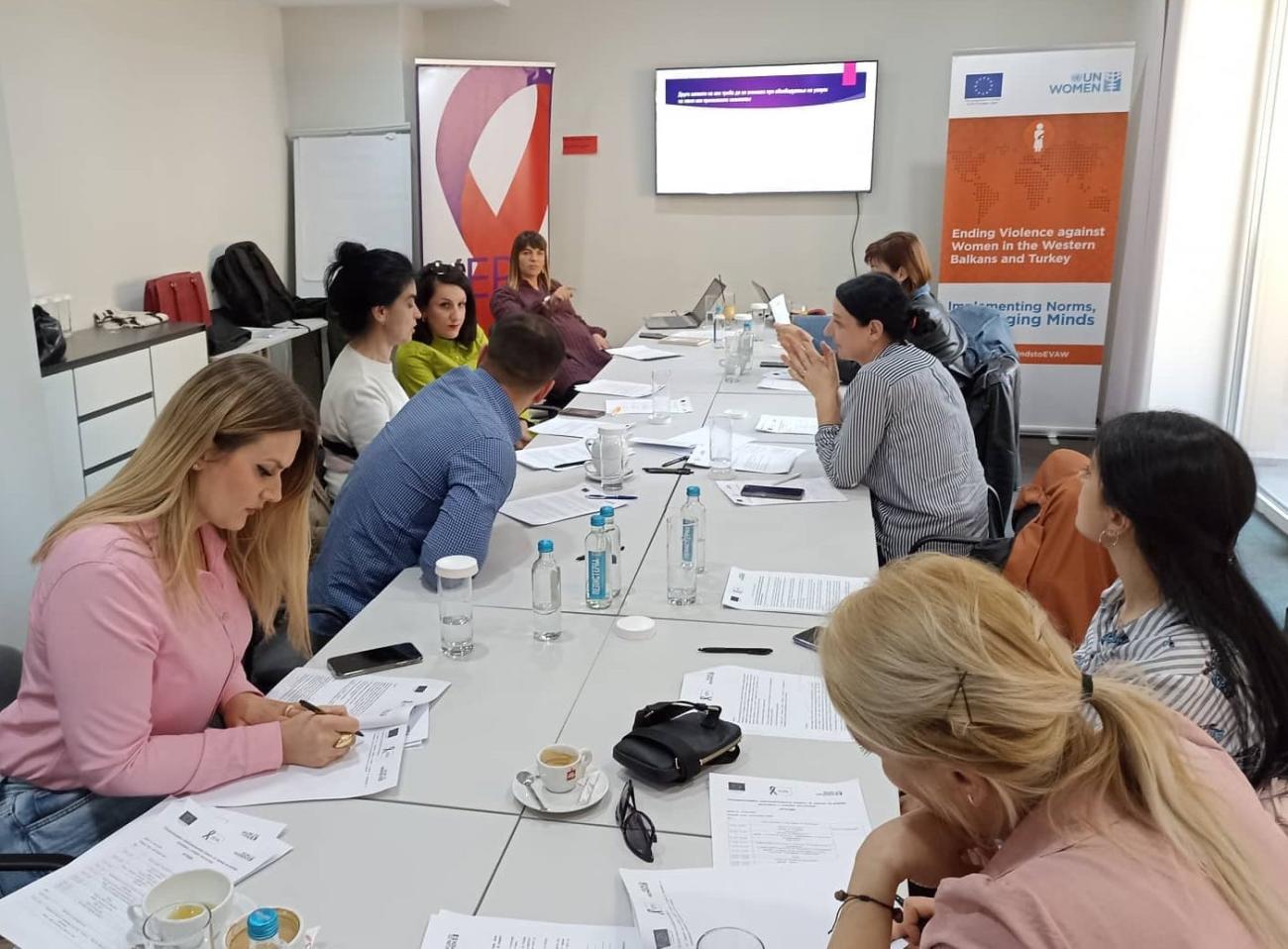Training sessions on providing psychosocial support to women victims of violence.
During 14-16 April, 10 representatives from local civil society organizations and Centres for Social Welfare from Kumanovo and Sveti Nikole joined a two-day training session on providing psychosocial support to women victims of violence. The training was carries out by Health Education and Research Association (HERA), a local partner organization of UN Women North Macedonia.
The training aims to strengthen capacities and deepen the cooperation between relevant actors in the social protection system; it involved interactive group work, analyses and extensive discussions on case studies among the participants.
Training participants confirmed their satisfaction and usability of skills that they have aquired through the series of trainings to date. “I have learned new methods and approaches in counselling women victims of domestic violence, and I find these techniques very useful for my everyday work”, one of the training participants has shared. Participants have also attested how the sessions have helped them reassess and improve their personal and professional capacities when it comes to offering first-hand psychosocial support to women who have suffered violent behaviour.
This session was part of a series of trainings for specialised services to victims of domestic and gender-based violence, which is primarily focusing on support to women from minority and vulnerable social groups. The final part of the training cycle continues in May 2022.
This sequence of trainings are organized within the regional programme Implementing Norms, Changing Minds, implemented in North Macedonia since 2017. The programme aims to develop a legislative and policy environment aligned with international standards on eliminating violence against women and all forms of discrimination; to promote social norms and attitudes to prevent gender discrimination and violence against women; to empower women and girls, including women from minority groups who have experienced discrimination or violence, and to use and advocate for available, accessible, and quality services.
More information on this programme can be found here


